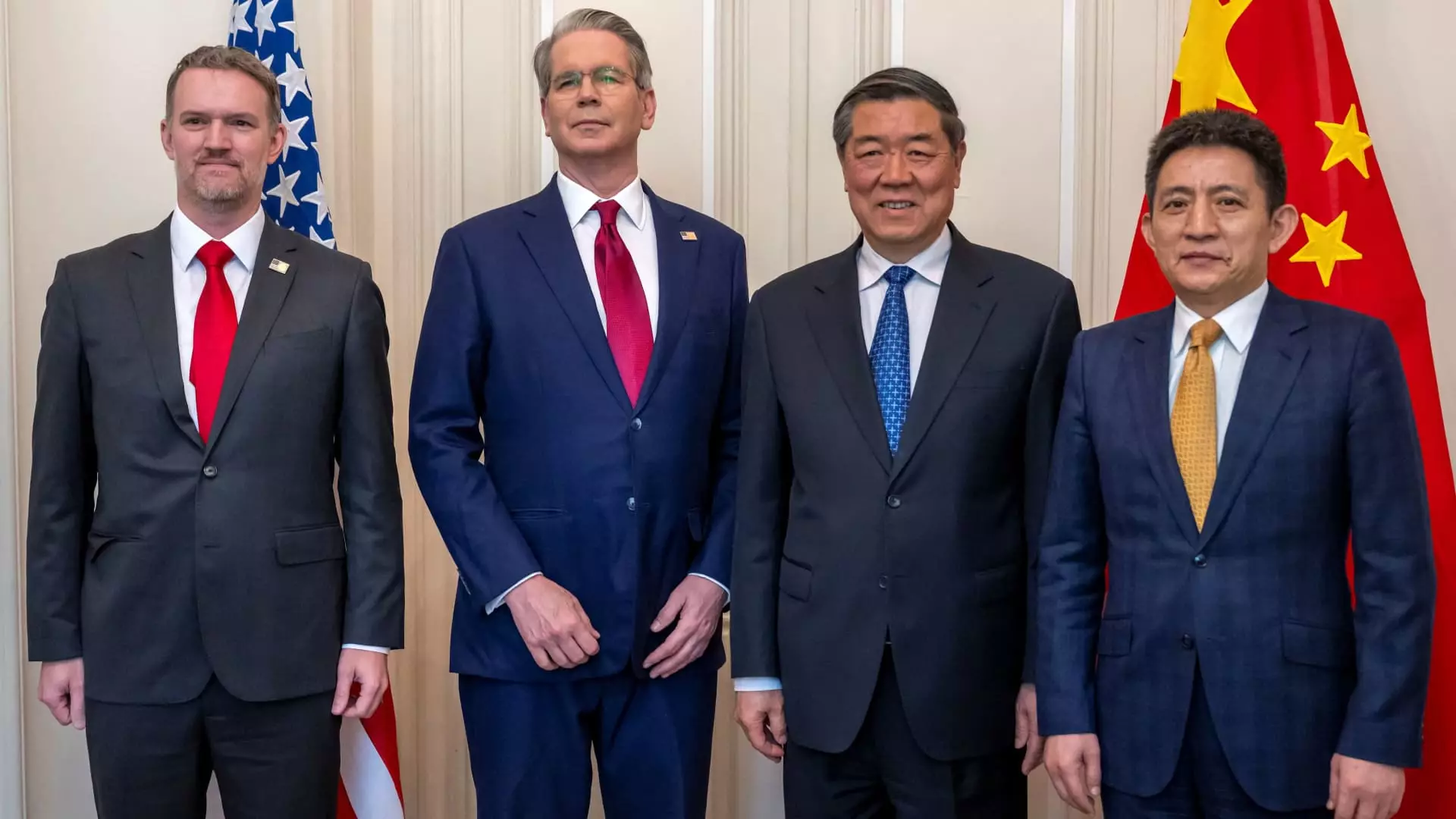The recent negotiations between U.S. and Chinese trade officials highlight a significant crossroads in international diplomacy. As political tensions escalate between the world’s two largest economies, the stakes have never been higher. The meeting in London, involving top officials such as U.S. Treasury Secretary Scott Bessent and China’s Vice Premier He Lifeng, raises critical questions about the effectiveness of dialogue in resolving deep-rooted economic grievances. It’s almost tragic that these discussions occur under the shadow of previous aggression: tariffs that have stifled trade and fostered hostility are now the backdrop of what should ideally be a constructive engagement.
In a global landscape where interdependence in trade has grown exponentially, relying on dated methods of negotiation appears naive. The reliance on tariffs has fostered an environment of mistrust and retaliation rather than collaboration. The irony lies in the fact that both nations are scrambling to prevent an impending trade war, yet their actions tell a drastically different story. Just weeks prior, the news cycle buzzed with announcements of tariffs from Trump’s administration intended to push back against perceived unfair trade practices. In direct retaliation, China escalated its own tariffs, and discussions became ensnared in a cycle of blame rather than solutions.
The Nature of the Dispute
What’s perplexing is not only the nature of these tariffs, but the broader implications of this confrontation. Rebecca Harding, chief executive of the Centre for Economic Security, captures the urgency of the moment when she emphasizes that this economic disagreement has transformed into an “existential battle.” By framing the conflict in terms of data, AI, and tech competition, Harding effectively argues that this is more than mere economics; it embodies the rivalry between two distinct worldviews and modes of governance. Trade no longer exists in a vacuum; it is embroiled in a struggle for technological supremacy and national security.
The question remains: why is the dialogue so fraught with tension? As factions within each country accuse the other of violating previous agreements—China’s alleged sluggishness in permitting exports versus the U.S. imposing restrictions on educational visas—an image emerges of two nations locked in a duel, unwilling to budge even for the sake of progress. By interlacing trade disputes with concerns over national security, both sides seek to cement their positions, showcasing an increasingly adversarial stance that undermines the potential for genuine cooperation.
Assessing Future Directions
While some analysts express tepid optimism that any resolution could eventually stem from the London talks, the prevailing sentiment seems more one of skepticism. Zhiwei Zhang, a chief economist, articulates a grim outlook that resonates throughout the business community. A piecemeal resolution might emerge, perhaps around specific commodities like rare earth elements, but he cautions against expecting comprehensive agreements any time soon. The irony of seeking peace while simultaneously constructing walls—both metaphorically and literally—points to a profound misunderstanding of what international trade should ideally represent.
Ultimately, the conversations taking place this week are emblematic of a broader failure to grasp the interconnectedness of our modern world. If trade policy continues to be driven by nationalistic fervor and outdated Cold War-era mentalities, the irony is palpable; the trade conflict will not merely be a crisis of economics but a significant cultural and technological divide. The powerful narratives in both nations’ attempts to win this so-called ‘battle for the 21st century’ risk not only economic well-being but threaten to erode the socio-political fabric shared by both nations.
Negotiation implies compromise, yet the current landscape does not favor such ideals. Therefore, unless both countries can address their disputes with a mind open to mutual benefit rather than rigid adherence to self-interest, the imminent future may well be one of ongoing strife. In a world increasingly governed by data and technology, the challenge lies in recognizing that collaboration is not merely advantageous but essential for survival. As these trade discussions unfold, it becomes evident that the path to cooperation is as volatile as ever, riddled with challenges that require a fresh perspective and renewed commitment from both sides.

Leave a Reply